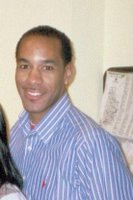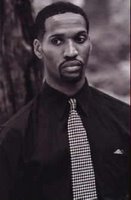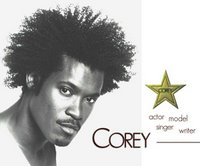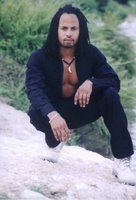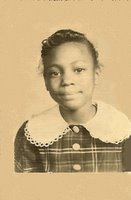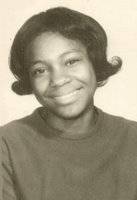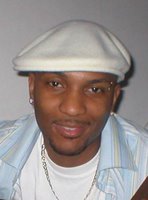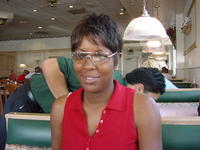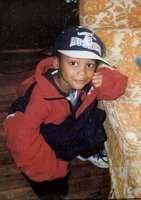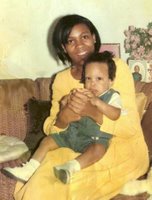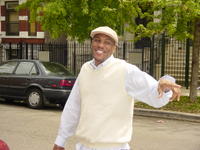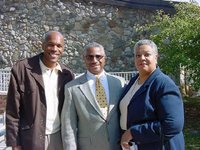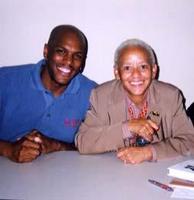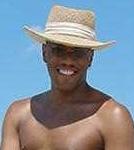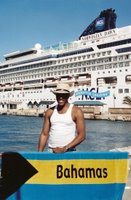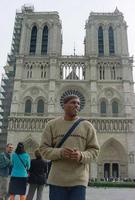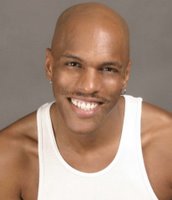|
Unpacking BaggageJust going through my luggage, clearing out some things to make way for enlightenment Monday, January 16, 2006Uppity Black Folks?  I love Tyler Perry's Madea when she gets her pretentious daughter, Vickie, together. "I oughta punch you in the face!" she tells her. It happens. Folks get a degree or a little bit of money and they will get "new." They might change churches, get new friends or even sever ties with family in order to fit into their new image. Sometimes the elite will become a critic and believe that they know what's best for the entire culture. In the early 20th Century the critic was W. E. B. Dubois. DuBois’ philosophy of the “Talented Tenth” was that a college-educated elite would chart, through their knowledge, the way for economic and cultural elevation for the black masses. Dubois' thinking ran in direct opposition to Booker T. Washington's. Washington's message to the Negro was that political and social equality were less important as immediate goals than economic respectability and independence. Washington believed that if blacks gained an economic foothold, and proved themselves useful to whites, then civil rights and social equality would eventually be given to them. Blacks were urged to work as farmers, skilled artisans, domestic servants, and manual laborers to prove to whites that all blacks were not “liars and chicken thieves.” The critics are still around. This op-ed piece by Nick Childs from the New York Times puts me in a Dubois state of mind. Last month I happened to go into the Borders Books at the Stonecrest mall in Lithonia, Ga., about ahalf-hour from my house here. To my surprise, it had one of the largest collections of books by black authors that I've ever seen outside an indepedent black bookstore, rows and rows of bookcases. This is the sort of discovery that makes the pulse quicken, evidence of a population I've spent most of my professional life seeking: African-American readers. What a thrill to have so much space in a major chain store devoted to this country's black writers. With an extra spring in my step, I walked into the"African-American Literature" section - and what I saw there thoroughly embarrassed and disgusted me. On shelf after shelf, in bookcase after bookcase, all that I could see was lurid book jackets displaying all forms of brown flesh, usually half-naked and in some erotic pose, often accompanied by guns and other symbols of criminal life. I felt as if I was walking into a pornography shop, except in this case the smut is being produced by and for my people, and it is called "literature."-But the placard above this section of Borders in Lithonia didn't say "Street Lit," it said "African-American Literature." We were all represented under the placard, the whole community of black authors - from me to Terry McMillan and Toni Morrison, from Yolanda Joe and Benilde Little to Edward P. Jones and Kuwana Haulsey - surrounded and swallowed whole on the shelves by an overwhelming wave of titles and jackets that I wouldn't want my 13-year-old son to see: "Hustlin' Backwards." "LegitBaller." "A Hustler's Wife." "Chocolate Flava." I've heard defenders say that the main buyers of these books, young black women, have simply something that speaks to them, and that it's great that they're reading something. I'd agree if these books were a starting point, and that readers ultimately turned to works inspired by the best that's in us, not the worst. But we're not seeing evidence of that. On Essence magazine's list of best sellers at black bookstores, for example, authors of street lit now dominate, driving out serious writers. Under the heading "African-American Literature" what's available is almost exclusively pornography for black women. As I stood there in Borders, I had two sensations: I was ashamed and mortified to see my books sitting on the same shelves as these titles; and secondly, as someone who makes a living as a writer I felt I had no way to compete with these purveyors of crassness. That leaves me wondering where we - writers, publishers, readers, the black community - go from here. Is street fiction some passing fad, or does it represent our future? -At times, I push myself away from the computer in anger. I don't want to compete with "Legit Baller." But then I come across something like "The Known World" by Edward P. Jones and again I am inspired. But I must say that I retain very little of the hope and excitement and enthusiasm that I had when my first book was published eight years ago. I feel defeated, disrespected and troubled about the future of my community and my little subsection of this carnivorous, unforgiving industry All I can say is "Boo Hoo," and wipe a tear. Pulp fiction has been around forever. Claude McKay's, Home to Harlem was considered street trash when it was published, but someone read it. That's all that matters to me. It's all about literacy. I will also be pleased to share a shelf with Legit Baller. I firmly believe that one book leads to another to another. Sister Souljah's, Coldest Winter Ever inspired my cousin to read Terry McMillan (though I think Souljah may be the better author). She is now struggling through Toni Morrison (I told her to read Sula first). It's beautiful to see. People are going to read what they want. The stores are going to sell what they want. I'm not sure if a "Street Lit" section is a good thing. I think Latosha Jones needs to read Toni Morrison and Edward P. Jones needs to read Raheem Carter. It's all about getting a greater understanding of each other through the written word. We need to stop being so uppity. Source: The New York Times (January 4, 2005) |
|



